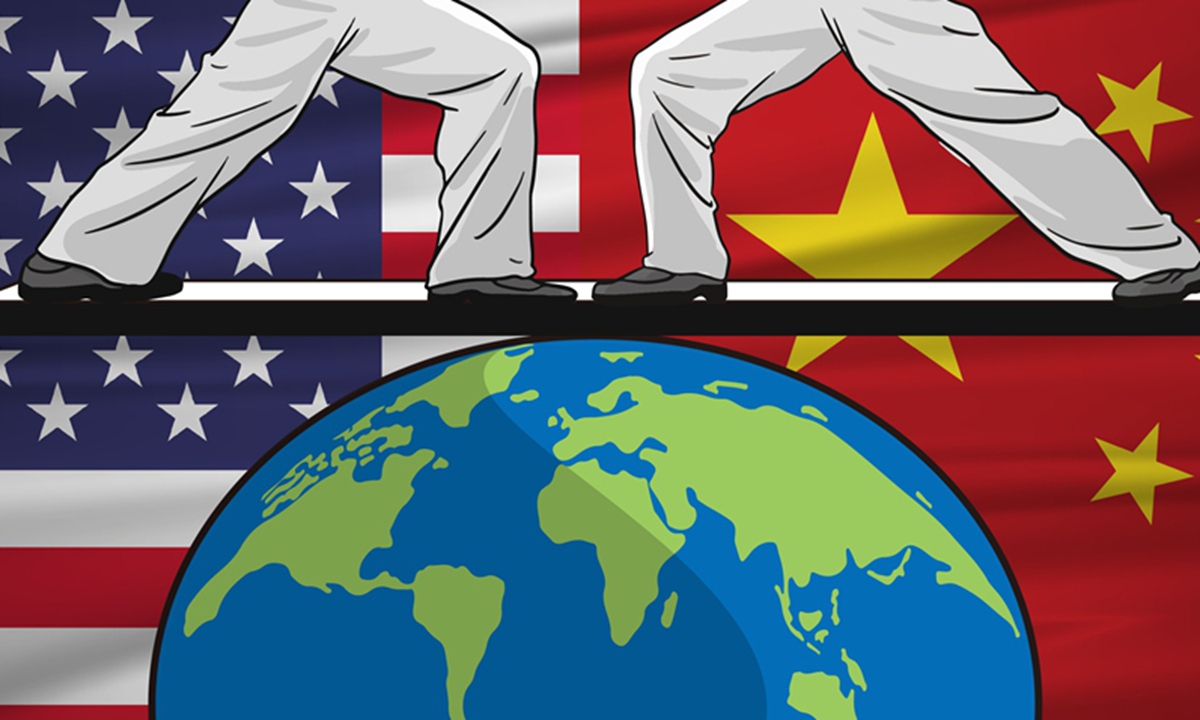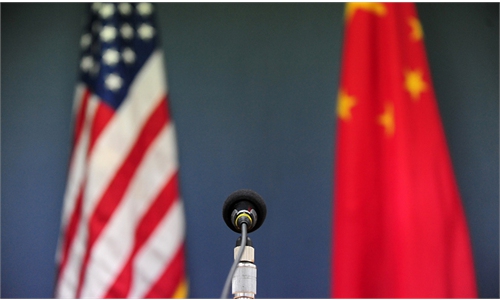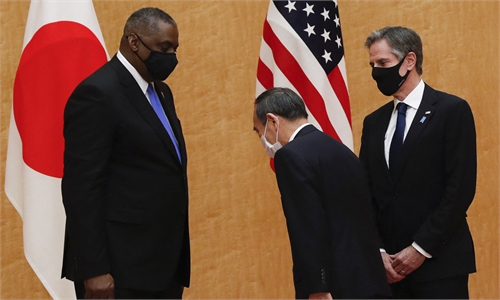
China US Photo: GT
If China could achieve annual 5-6 percent economic growth rate in the next 10 years through 2030, it will become the world's largest economy, renowned economist Justin Lin Yifu said at the China Development Forum 2021 over the weekend.The projection implies optimism toward China's economic development, but it is also possible that there will be lots of uncertainties and even challenges facing the world's second largest economy during the process to grow.
In 2020, China's GDP scale reached more than 70 percent of the US, and the country is the only major economy to report a positive growth, thanks to the government's decisive measures to control the coronavirus pandemic.
With the narrowing economic gap between the US and China, there has been rising forecasts over when the shift in title of the world's largest economy will take place, which is supposed to be of great significance to the world's economic and power structure.
If observed from a different angle, it doesn't matter when the tipping point of the change will come, because the Chinese economy has grown to a scale large enough to resist US harassment by becoming an indispensable part of the world industrial chain.
Some are concerned about the prospect of US-China relations after the Anchorage high-level strategic dialogue, worrying that competition or rivalry between the two countries will only grow fiercer.
In the past weeks, the Biden administration officials carried out intensive consultations with its so-called allies with the purpose to shadow China - indicating that Washington is not ready to give up Trump administration's anti-China policy.
However, as long as China's giant economy keeps growing at annual 5-6 percent rate, fired up by massive infrastructure and technology investment, surging domestic consumption power and exports, Washington's gimmick to summon a few allies to isolate this country can hardly impact China's GDP growth. At the same time, profit margins of many American companies that rely on Chinese market will become thinner, as Chinese consumers turn to buy non-American products.
China's extraordinary governance, social tranquility, 500-million middle class base, improving business environment, skilled labor force and solid industrial fundamentals are all important factors for China's friendly trade partners and multinational corporations to keep focusing on this market.
According to an Economist report, China is now the largest goods trading partner of 64 countries, against just 38 for the US, which speaks of China's market magnet.
The US government may aspire to build an anti-China coalition to hold back China's economic growth, but the fact is China's economic scale and potential determine none of its allies will take an initiative to cut off from the world's largest market. Even Australia, a hardcore US ally which has got a bruised eye in an idiotic tussle that Canberra initiated with Beijing, is now looking to seek some wiggle room to repair its frosty trade relations with China.
And, if Washington continues to push for its allies to contain China, the businesses in its allied countries will stand up and say no. As the economic center of the world gradually moves to the Far East, nobody is willing to shun the door to a huge and dynamic market of 1.4 billion consumers. It will be wise to keep neutral, and not to take sides in China-US strategic contest.


